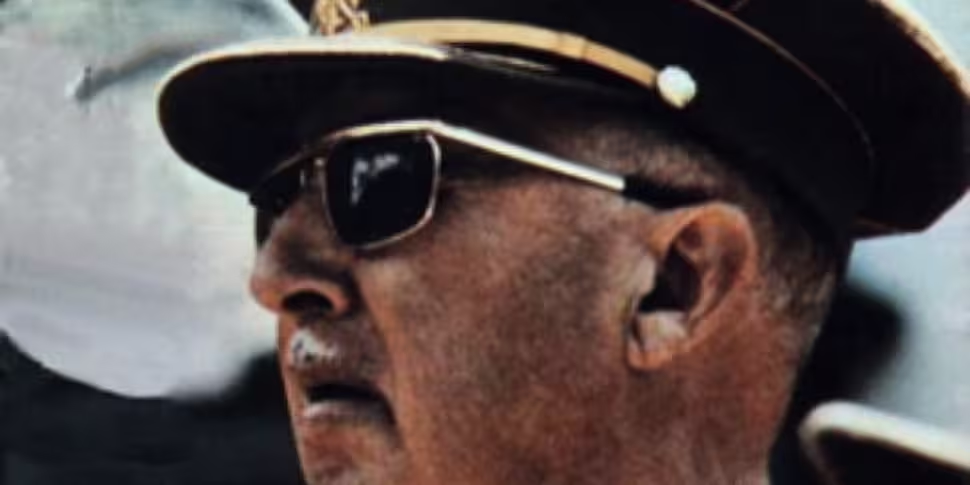As a Fascist state, Spain had obvious leanings towards the Axis upon the outbreak of World War II. Nazi Germany had even assisted Franco during his successful leadership of the Nationalist side in the Spanish Civil War, with debts still owed to the Germans for their aid during that time.
Against such a backdrop, it was perhaps surprising that Franco initially adopted a policy of neutrality during the conflict. It can be argued that such a policy is testament to the Machiavellian instincts of survival that Franco possessed, as he successfully kept both the Allied and Axis sides onside in the opening period of the conflict.
However, their change in position to ‘non-belligerence’ on 12 June 1940 demonstrates the difficulty in drawing a definitive policy of this regime. During this period, Spanish favouritism to their Fascist counterparts appeared to become more apparent. The state-controlled Spanish press was very much in favour of the Axis side, delivering pro-Nazi propaganda to its people, with the intention of solidifying popular Spanish support behind the Axis cause. Additionally, the Spanish government was accommodating in making all useful information at its disposal available to Germany.

Hitler and Mussolini in Venice, 1934
Politically, the Franco regime came very close to actual involvement in the war; in correspondence with Hitler, Franco stated that he wished ‘to be able to renew the old bonds of comradeship between our armies.’ However, the domestic conditions in Spain and a lack of a definitively, measurable benefit would prove to be the downfall of what appeared to be a genuine intention.
Instead, such support of the German cause was demonstrated by the deployment of the Blue Division to the Eastern Front, in the Nazi led ‘Operation Barbarossa’. This was a volunteer force known as ‘The Armed Apostles of the faith of Christ.’ Its definition as being a volunteer force is questionable, given the fact that a significant number of the members were professional soldiers and also that it was organised by the governing arm of the state.
It was incorporated into the German Army where it fought with distinction, but incurred heavy losses. It eventually disbanded in the later years of the war under pressure from the Allied nations and domestic sentiment.
In later years, Franco would attempt to claim that this division demonstrated Spain’s commitment to the Western world, as it raised a force to oppose Communist regime of Stalin. However, there is little question that this force was the closest Francoist Spain came to official involvement in the war on the Axis side and also best demonstrated their support of the fascist cause.

General Jordana, Minister for Foreign Affars, was largely responsible for Spain's move towards neutrality in 1943
By following the course of World War II, one can draw a basic correlation between Spain’s relationships with the belligerent nations. In effect, friendlier relations were always maintained with the side that held the upper hand. This is exemplified by the manner in which they dealt with the British following the landings in North Africa in late 1942, this event marked a time when the Allies were beginning to gain a foothold in the war.
While still retaining faith in the Axis, there was evidence of a weakening of Franco’s non-belligerent position. While not supporting the Allied landings in North Africa, Franco certainly did little to oppose this move by the British. As time went on, more evidence of this weakened stance emerged. In May 1943, Franco began delivering speeches predicting a stalemate in the conflict, as he proposed peace negotiations.
Then, as the Allied superiority strengthened, Franco’s policies became more orientated toward friendlier relations with the west, officially declaring a position of neutrality in October 1943. Soon enough, Franco was distancing himself from any links to the Axis cause. One example of this is demonstrated by Franco removing the pictures of Hitler and Mussolini that were once proudly on display in his office.

Franco and Eisenhower in Madrid, 1959
In the long term, Spain suffered for their failure to assimilate to an acceptable degree with the Allied cause. Franco was careful to never be overtly in favour of either power. Yet, it was this lack of decisiveness that ultimately cost Franco. In the post war era, Spain was ostracised from the Western world, not benefitting from the American Marshall Aid and remaining outside of the United Nations.
Ultimately, Spain emerged politically due to their anti-communist stance, as the United States, driven by the domino theory, extended an arm of diplomacy towards Franco, demonstrated by the Concordat of 1953. However, this brief respite was not enough to save Franco’s rule, which he would effectively relinquish to the Opus Dei in 1957. They began to implement reforms that would open Spain to the wider world, following the isolation experienced as a result of Franco’s policies during the war period.
Suggested Reading:
Stanley G. Payne, ‘The Franco Regime, 1936-1975’ (1987)
Wayne H. Bowen, ‘Spain During World War II’ (2005)
For all other 'Talking History' Book Recommendations, click here









